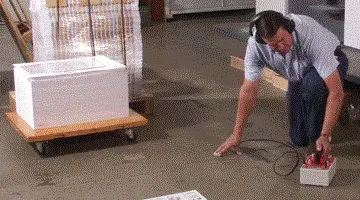Slab Leak Detection
It is very important to understand the risks and the need for early slab leak detection in your house. Your house is at a greater structural risk if the area where the house is built has a high water table. Moreover, houses which are built on soils which have high clay content are also vulnerable. Many cases have been noticed where due to moisture fluctuations and excessive upward pressure created by it has resulted in the eruption of the flooring. As a result of this, water flooding may occur on every room on the ground floor. This may not only cause a lot of inconvenience, but it can also result in significant financial loss as well. It may damage the electric appliances, the floor coverings, furniture etc. In order to avoid these things it is very important to be aware of the slab leak detection signals and the need to act quickly to resolve these issues.

One possible indication of a slab leak in your house could be a sudden rise in the water bill without increase in use. Another sign of your house having a slab leak is noticeable wet carpet or flooring in your home. If you hear the sound of running water even if there are no taps running anywhere in the house, then it is best to check for slab leak. Symptoms like visible cracks, uneven growth of foundation plants or visible shift in the soil around the house should also be taken very seriously. If you observe warm spots on slab floors or if you can get bad smell coming from floors or walls, then your house may have a leak in the slab.
It is best to have a thorough plumbing inspection every year to detect leaks at the earliest. By early slab leak detection you not only avoid all the damages to your property, but also save a lot of money. There are many companies which specialize in fixing slab leaks as well as detecting them. So, next time when you notice any of the above signs, contact the experts at the earliest for slab leak detection.
